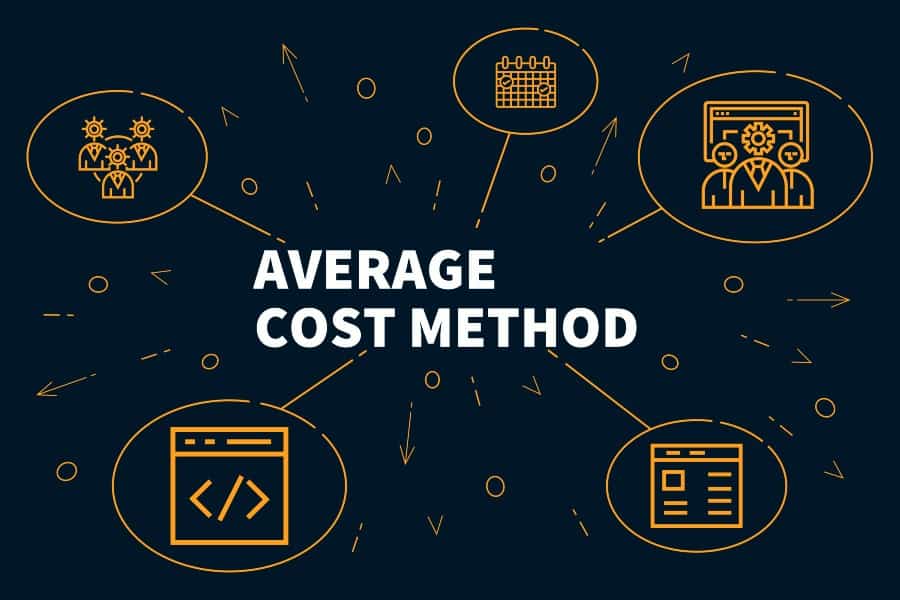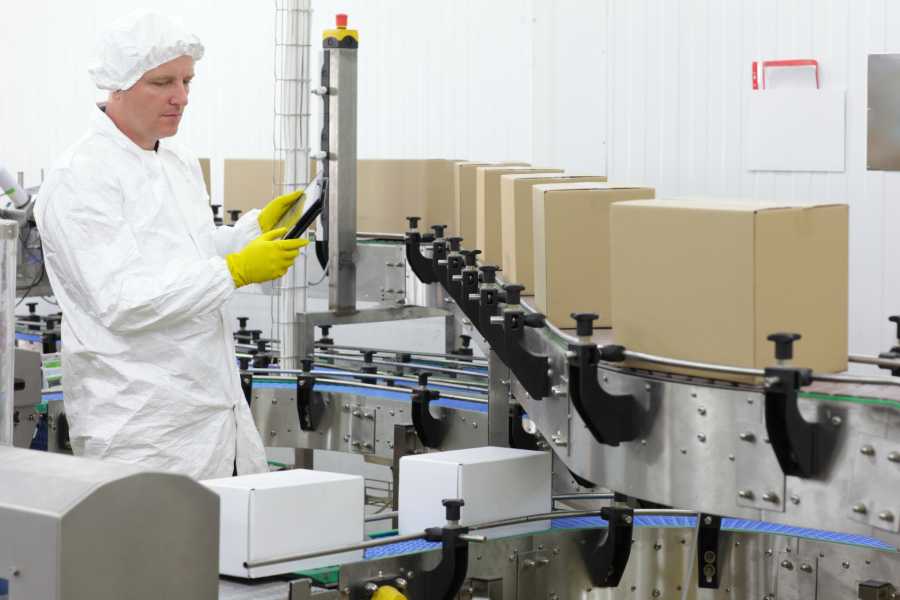The best accounting software for small manufacturing businesses includes key features, such as inventory management, bill of materials (BOM) management, work order management, cost accounting, and inventory management. It could be an enterprise resource planning (ERP) solution, a general-use bookkeeping software with inventory integrations, or a specialized manufacturing software that integrates with QuickBooks Online or Xero.
That said, here are our top six best accounting software for manufacturing companies:
- Microsoft Dynamics 365 Business Central: Best overall accounting and manufacturing software within ERP
- QuickBooks Enterprise Diamond: Best standalone desktop accounting software for manufacturers
- QuickBooks Online Advanced: Best easy-to-use accounting software for small-scale manufacturers
- Katana Manufacturing ERP: Best manufacturing-specific ERP
- SAP Business One: Best ERP for fast-growing manufacturers
- Odoo: Best for manufacturers that sell directly to their customers
The Fit Small Business editorial policy is rooted in the company’s mission, which is to deliver the best answers to people’s questions. This serves as the foundation for all content, demonstrating a clear dedication to providing valuable and reliable information. Our team leverages its expertise and extensive research capabilities to identify and address the specific questions our audience has—and this ensures that our content is rooted in knowledge and accuracy.
In addition, we employ a comprehensive editorial process that involves expert writers. This process ensures that articles are well-researched and organized, offering in-depth insights and recommendations. Fit Small Business maintains stringent parameters for determining the “best” answers, including accuracy, clarity, authority, objectivity, and accessibility, and these see to it that our content is trustworthy, easy to understand, and unbiased.
Comparison of Best Accounting Software for Manufacturing
Microsoft Dynamics 365 Business Central: Best Overall Accounting and Manufacturing Software Within ERP

Pros
- Is full ERP software
- Integrates with Microsoft 365
- Has a user interface that is consistent with other Microsoft 365 products
- Lets you manage inventory supply from multiple locations
- Can create inventory, sales, and cash flow forecasts
- Has affordable team member licenses
Cons
- Might be complicated for smaller manufacturers
- Is pricey if the business requires more than one full user license
- Has few native integrations
Each Business Central plan comes with one full user license. Visit Microsoft’s licensing guide to understand how licenses work and determine the number of licenses needed.
- Business Central Essentials: $70 per full user per month
- Business Central Premium: $100 per full user per month
Additional team member licenses (not full user licenses) are $8 per user, per month.
We picked Microsoft Dynamics 365 (D365) Business Central because it is an all-in-one ERP solution for manufacturing, accounting, finance, HR, customer relationships, and business intelligence (BI). While there are other ERP solutions in this guide (SAP Business One, or B1, and Odoo), we find D365 easier to use as it has a user interface that is consistent with other Microsoft products—which many are familiar with.
The program provides many specialized features catered to the unique needs of manufacturers, such as production management, material requirements planning, and product order management. To help you track the financial aspects of your business, D365 lets you monitor production costs, like labor and materials, as well as create budgets and forecasts.
The downside to using D365 is that it can be pretty expensive for businesses needing multiple full user licenses. A good alternative is QuickBooks Enterprise, which provides volume discounts for additional user licenses.
QuickBooks Enterprise Diamond: Best Standalone Desktop Accounting Software for Manufacturers

Pros
- Is the most powerful QuickBooks Desktop product
- Tracks cost based on the bill of materials
- Computes landed cost in raw materials costing
- Assigns serial numbers to individual items
- Assigns lots for easier and faster tracking of batches
- Creates bill and purchase order (PO) workflow approvals
Cons
- Has an expensive on-premises version
- Lacks manufacturing management features such as task assignments or process tracking
- Is too pricey and complex for manufacturers with simple manufacturing needs
- Offers a limited mobile app
QuickBooks Enterprise offers four versions, with monthly pricing that varies depending on the number of users.
- Silver: From $142 for one user to $960 for 11 to 20 users
- Gold: From $194 for one user to $1,004 for 11 to 20 users
- Platinum: From $231 for one user to $1,049 for 11 to 20 users
- Diamond (recommended): From $389 for one user to $1,429 for 31 to 40 users
You can also opt for annual subscription options for all plans except Diamond, which is available only as a monthly subscription. There’s no free trial, but Enterprise comes with a 60-day money-back guarantee.
If you prefer a locally installed accounting solution for your manufacturing business, QuickBooks Enterprise is a great option. It provides extensive accounting features that are useful for manufacturers, such as lot and serial number tracking, BOM, work order management, and advanced reporting.
The solution also integrates with Salesforce CRM to sync and access customer data and make them easily available to support teams. On top of that, you’ll also have control over SO fulfillment to help you track sales, back orders, and partial orders.
On the flip side, Enterprise is too expensive and complicated for very small businesses, especially those needing basic inventory management features. For this, we recommend QuickBooks Online Plus or Advanced—which is much easier to use and more affordable than QuickBooks Enterprise.
QuickBooks Online: Best Easy-to-Use Accounting Software for Small-scale Manufacturers

Pros
- Is more affordable than QuickBooks Enterprise
- Integrates with multiple ERP and MRP? software
- Is the easiest to use accounting software in this guide
- Is the perfect fit for small-scale manufacturers
Cons
- Lacks advanced inventory and order management features
- Is not ideal for large-scale manufacturers
- Has no assembly management
- Has no industry-specific edition
QuickBooks Online has four plans, but only the two higher tiers are appropriate for manufacturing as they include inventory management features.
- Plus: $99 per month for up to five users
- Advanced: $235 per month for up to 25 users
You can try QuickBooks Online for free for 30 days with no credit card required or sign up right away and get a 50% discount for three months.
QuickBooks Online is our best pick for small manufacturers because it provides an easy-to-use accounting system to track the cost of goods manufactured without a lot of confusing ERP features. Our most recommended plan is QuickBooks Online Plus or Advanced because of the availability of inventory management features.
Another feature we like about QuickBooks Online is the ability to track activity by classes and location—which is particularly useful for manufacturers with multiple products and offices or warehouses. Also, for those who have complex bookkeeping needs, QuickBooks Online has a vast network of QuickBooks ProAdvisors, making it easy to seek professional support if needed.
However, if you require advanced features, such as shop floor control, batch tracking with expiry dates, and BOM, we recommend that you integrate it with Katana Manufacturing ERP, which is also in this guide.
Katana Manufacturing ERP: Best Manufacturing-specific ERP

Pros
- Integrates with QuickBooks Online and Xero
- Lets you manage shop floor operations through web-based app
- Allows you to set default shop floor operations per manufacturing order
- Has interconnected sales, purchasing, and manufacturing modules
- Is easier to use than most ERP and MRP software
Cons
- Has limited accounting features; is not a complete bookkeeping system
- Has no dedicated mobile app for shop floor management
- Lacks FIFO costing method
- Becomes pricey when adding more users
Katana offers four subscription options, all of which support an unlimited number of users:
- Starter: $199 per month for one inventory location and up to 1,200 sales orders per year
- Standard: $399 per month for up to three inventory locations and 6,000 sales orders per year
- Professional: $899 per month for up to 10 inventory locations and 18,000 sales orders per year
- Professional Plus: $1,799 per month for unlimited inventory locations and up to 40,000 sales orders per year
Katana Manufacturing ERP is specifically designed to meet the needs of manufacturers. While it’s not an accounting system per se, it integrates with QuickBooks Online and Xero to enable bookkeeping features. The integration allows for better inventory tracking by connecting your inventory data from Katana with your financial data in QuickBooks Online or Xero.
Additionally, order and production data from Katana are automatically pushed into your accounting software for streamlined invoicing. To help you better track profitability, you can generate and analyze combined production data with your financial information.
However, the Katana and QuickBooks Online or Xero bundle might be too much for very small companies with basic needs. For this, we recommend trying Odoo, which allows you to use its inventory management features for free.
SAP Business One: Best ERP for Fast-growing Manufacturers

Pros
- Has outstanding native integrations
- Is food for upscaling and future-proofing your manufacturing business’ accounting needs
- Comes with top-of-the-line BI features
Cons
- Has no transparent pricing
- Comes with a steep learning curve and traditional UI design
- Lacks user training and has limited customer support
SAP B1 doesn’t publish its pricing information, so you need to contact the provider to request a customized quote. Factors that affect pricing may include the number of users and the features needed.
However, SAP B1 looks to be an expensive ERP, although there are no published rates on SAP’s website. If you conduct a quick search, you’ll see third-party resellers offering SAP B1 at monthly prices ranging from $100 per seat to over $1,000 per user for perpetual licenses. If you want a more scalable solution, especially if you have multiple users, then you should consider Odoo.
SAP B1 is another popular ERP software used by many companies locally and internationally, making it a direct competitor of D365. We like SAP B1 because it is an ERP software that can handle growth efficiently. Its native integrations can make it easy for small manufacturers to transition to midsize manufacturers with little adjustment. If compared with D365, SAP B1 is a more long-term software solution.
Odoo: Best for Manufacturers Selling Directly to Customers

Pros
- Is free for one app
- Supports unlimited users
- Extends the option to add other apps, such as Odoo CRM and Odoo Project
- Offers additional apps at an affordable rate
- Provides accounting and inventory bundled in the POS app
Cons
- Is not great for highly regulated products
- Requires development skills to customize the program
- Doesn’t integrate with third-party apps
Odoo has a unique pricing model where you can get one app for free. The best part is that if the chosen app requires additional dependent features to work correctly, the app is included for free. For instance, if you purchase the POS system, the inventory and accounting apps are free.
If you need access to all of Odoo’s apps, you can select from two paid options:
- Standard: $11.20 monthly per user
- Custom: $17 monthly per user
You can try any of the paid plans for free for 15 days with no credit card required.
Odoo is an open-source ERP suite that includes various integrated modules, including accounting, inventory, and POS. The POS app makes it a great choice for manufacturing companies selling directly to customers, such as electronic and gadget manufacturers. This allows companies to stay on top of the inventory while also efficiently tracking their sales. Additionally, Odoo’s POS app supports multiple payment methods, including cash, credit cards, and digital wallets.
For added benefit, manufacturers can add the CRM module so that they can track purchase history and customer preferences. Using this data, they’ll be able to improve their marketing and customer services. Also, they can generate detailed sales reports, which provide meaningful insights into product performance, and sales trends.
A huge drawback to using Odoo is that it requires technical expertise to customize the software. If you have complex accounting and production management requirements but need a simpler solution, D365 is a great option.
How We Evaluated the Best Accounting Software for Small Manufacturing Businesses
To determine the best accounting software for small manufacturing businesses, we looked into several factors.
- Pricing: Most small manufacturers would be concerned about the monthly or annual cost of the software. In this guide, we included products with different pricing structures that may be affordable or expensive, depending on your budget and ability to pay.
- Feature set: We looked into specialized features, such as inventory management, cost accounting, BOM management, production planning, work order management, and detailed financial reporting.
- Manufacturing software integration: The accounting platform should integrate directly with the manufacturing software for ease of use. However, it would be better if the user could get all the features in one software. That’s why our guide includes ERP and non-ERP software to aid in decision-making.
- Scalability: The solution should be scalable easily to the growing needs of the manufacturing business. As much as possible, we want you to choose one that is powerful enough to last for years to avoid frequent data migration as your business grows and needs more features.
- Ease of use: Sometimes, advanced features come at the cost of ease of use. We included products with different levels of ease of use to help you decide which trade-off you are willing to take. Do you want to go for easy-to-use software that will compromise features? Will you want to learn a more complex platform but get advanced functions?
- Comprehensive reporting: Manufacturing involves tracking of materials, labor, and overhead. The software you go with must have comprehensive reporting capabilities so that you can analyze all kinds of data from different sources.
Frequently Asked Questions (FAQs)
Dedicated software for manufacturing helps you track inventory costs and production on a deeper and more detailed level than with accounting software alone. With manufacturing software, you can influence the tiniest details—such as markups, margins, and overhead rates—which is not possible with general accounting software.
The best accounting software for your manufacturing business depends on your budget and needs. If you have a limited budget and have simple requirements, you may do well with QuickBooks Online or the free Odoo app. If you have complex needs, you should consider an ERP solution like D365 or SAP B1.
Bottom Line
The best accounting software for small manufacturing businesses should provide you with the needed solutions for your accounting needs. It should help you keep track of manufacturing costs and ensure that manufacturing processes remain profitable and sustainable.



